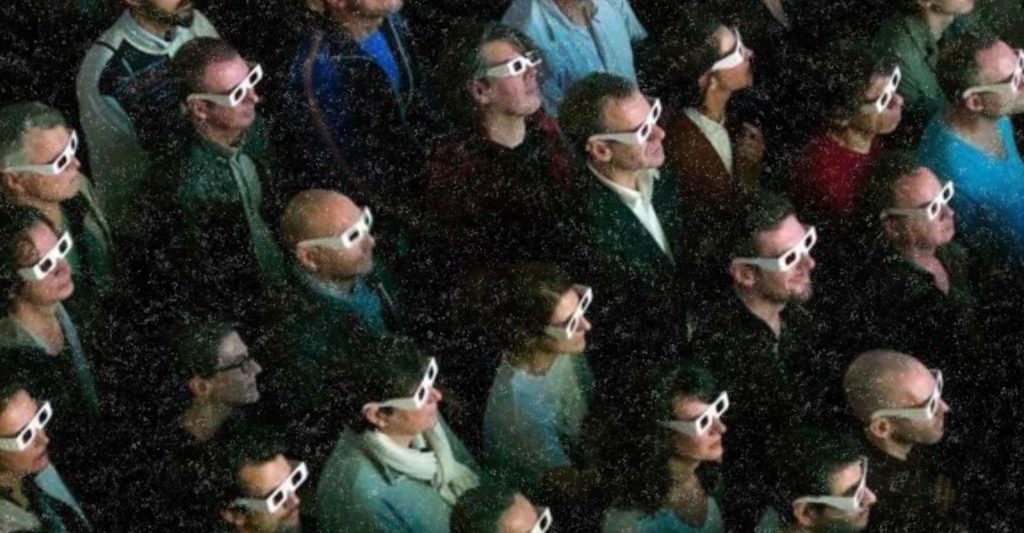IN DEATH WE SHARE
On a lazy Saturday recently, I gave myself some quality alone time. I was long overdue for one of these solitary contemplative afternoons. I allowed myself to heed my mind’s calling to further explore existential quandaries.
The afternoon pastimes consisted of watching “Star Wars Episode IV: A New Hope” for like the millionth time. I found myself rewinding and rewatching the two-minute lightsaber showdown between the aged Jedi Master Obi-Wan Kenobi and his former student turned Sith Lord, Darth Vader. When struck down by Darth Vader, Obi-Wan simply holds his saber at his chest in calm equipoise.
We all fear death. More specifically, we fear the pain. Not just the physical process of dying, but the pain of loss, the thought of not being able to be with the ones we love in the way we’ve come to know.
However, if we avoid even thinking of death, how would we fully live? To fully love? To fully be gracious in each exchange. When we choose to understand our own death, our lives become enriched exponentially.
Our Fear of Death
The big pink elephant lumbers into the room. We all know we are going to die, but we do not talk about. Ironically, death is part of life yet do not treat death that way. More or less, our culture encourages us to regard death as the ultimate adversary. Death is considered something negative to think or talk about. 68% of Population in the United States suffer from Thanatophobia or death anxiety. The perpetuation of life and death opposition is conveyed when treatment to a terminal illness is not “successful” and one “loses the battle to cancer”. Furthering life and death’s adversarial relationship, life represents victory and death encapsulate defeat. Death is the enemy and it is imperative that we take measures to subjugate death, conquer it, and avoid it.
We deny death. By excluding it from the conversation. When I contemplate out loud about my own inevitable physical demise, I am met with abhorrent reactions: “You are so morbid. Don’t talk like that, it makes me so upset”. Such matters do not belong in interpersonal dialogue or the public forum for further exploration and study. Do not entertain such darkness. Good vibes only, Bro. These prevailing attitudes only culminate into a pathological relationship with death wrought with aversion, all ultimately leading to an underlying uneasiness of matters concerning death.
Our failure to face our fear of death is an important reason why we find it so difficult to help the dying and the bereaved. In our avoidance, we invest frantic energy into clinging to life. According to Patanjali’s Yoga Sutras, fearing the loss of one’s life is one of the five kleshas or causes of suffering. Such strong attachment to preserving one’s mortal existence contributes to a me-centered mindset that inescapably leads to isolation and social disconnect. American culture focuses on science and medicine as a solution to the “problem” of dying. There is a pervasive arrogance thinking that our salvation can come in the form of a man-made antidote to death. The only cure for the “problem of death” is immortality, a solution beyond the efforts of modern medicine. Death is not our adversary, defining ourselves as material beings are the root of our aversion.
Why We Fear Death
Perhaps the current society’s pervasive fear of death is rooted in our material conditioning. As it viscerally appears, death itself lacks material form. It is impossible to launch a probe to the far side of death and have viable evidence of what lies beyond the post-mortem. Data or some kind of material proof would allay our fear because death would cease to be an unknown.
Our incarnate human understanding of reality is based on our five senses – touch, smell, sound, taste, and sight. The senses discern experiences and objects in terms of what is beneficial, harmful, pleasant, or unpleasant. Thusly, we come to regard ourselves as an ego mind/body complex where our five senses reign as the informers of our existence. The Roman Emperor Marcus Aurelius once wrote in Meditations, “He that feareth death, either feareth that he shall have no sense at all, or that his senses will not be the same”.This is how death conveys its ethos of finality. We fear death because our ego mind cannot comprehend not existing or feeling. However, the death of the body is only the end of reality as our senses know it.
Healthier Ways to Approach Death
First and foremost, developing a healthier approach to death starts with recalibrating our mindset. Death challenges our consciousness to seek beyond the physical, to deepen our self-understanding beneath the judgments of our ego and the distraction of our senses. To make peace with our own death, it is critical that we stop regarding ourselves exclusively as a mind/body complex.
Spiritual Practices
To help us understand that we are more than just a mind/body complex, we must be willing to take time with to consistently look within and see past material distinctions of our world. Spiritual practices and rituals function transform our consciousness so that we operate from the Higher Self rather than from a material ego-centeredness as well as to reconnect our awareness to a deeper, more authentic part of ourselves that is inextricably part and parcel to greater, more profound reality. We can come to understand that there is an eternal, transcendent Self or soul that is not subject to the impermanence of time, the way our minds and bodies are.
By understanding that our true identity lies within our soul, which transcends space and time, seeing death as a state of non-existence becomes irrelevant. The fear of death loosens its grip. The lives that we live right now in our human mind/body complex is just part of the soul’s journey or the way one of my teachers puts it, “You are a spirit soul that is having an Amy experience right now”.
Spiritual seeking must be approached with a genuine heart, unmotivated by conditional expectations of the “ego self or the false self”. Though they take time and effort, integrating spiritual practices into your life help guide you to live with more meaning. The more we live connected to our true self, the more easily we will understand death as a natural transition of the soul. To live well is to also die well, without resistance, without fear.
Educate Yourself
One other way to change your approach to death is to educate yourself. Fear and avoidance are primarily born of ignorance. One of the gifts of having a human experience is being able to access the infinite learning capacity of the brain. Start by researching topics associated with death such as the end of life care or how to create a will. Death denial is an omnipresent feature of Western consumer capitalism, so further your study by reading about the death rituals and funeral rites practiced by different cultures throughout the world. By investigating death, we can peel away the illusions that prevent us from thinking critically about it.
Communicating Death
Lastly, the best way to dispel the negativity and taboo ethos surrounding death is to talk about it with each other. Usually, death is only discussed in the midst of a crisis situation or the ICU of a hospital. Shouldn’t a topic as universal as death be shown more attention than to be relegated to these situations?
To bring death “out of the closet” and into mainstream conversation, Jon Underwood established the first Death Cafe community meetup project in East London in September 2011. Since the inception, Death Cafe meetups have sprung up across Europe, North America, and Australia. Talking about death together in a safe, informal setting allows breathing room where people can discuss death, find meaning and reflect on what’s important and ask profound questions.
Together, we defy our fear.
Death is a call to uncover the soul, to seek within, and to look for the sacred awe. Death the great equalizer in the sense that we all will meet it at some point despite the material distinctions we are convinced of or foolishly give ourselves. Our shared mortality nudges us to listen to each other, to lift our layers and unapologetically show our vulnerability. Understanding death is to be well in the truest sense.
The way Star Wars’ Obi-Wan Kenobi meets his death is an example for all of us. He holds no fear or anxiety, not because he had a death wish or was suicidal. He is able to pass away situated in peaceful, noble manner perhaps because he lived harboring no aversion to death. Victory in life is not cheating death, it is our ability to die well.
Fear of anything does not serve our well being, especially fear of our own death. Death is not a negation of life, it is part of it and to cultivate a life of overall wellness, it is incumbent that we authentically develop a better relationship with our own mortality.
Want to read more about Death?
Check out Dylan Thomas’ “ Do Not Go Gently into the Night”, a poem that is read out loud at 2 out of 3 funerals in the U.S. Click here: https://www.brainpickings.org/2017/01/24/dylan-thomas-do-not-go-gentle-into-that-good-night/
Curious about Death Cafes? Click here: http://deathcafe.com/
http://credit-n.ru/zaymyi-next.html
http://credit-n.ru/zaymyi-next.html
http://credit-n.ru/zaymyi-next.html
http://credit-n.ru/zaymyi-next.html





